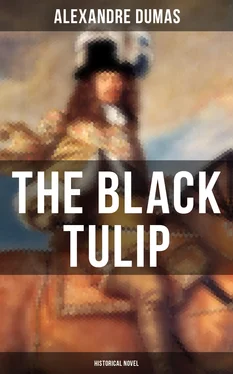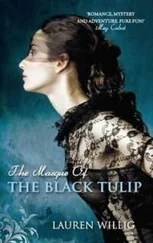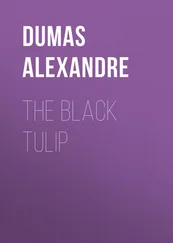Cornelius de Witt, raising himself on his couch, and grasping the hand of his brother, who shuddered at the touch of his linen bandages, replied,—
"Do not I know my godson? have not I been enabled to read every thought in Van Baerle's mind, and every sentiment in his heart? You ask whether he is strong or weak. He is neither the one nor the other; but that is not now the question. The principal point is, that he is sure not to divulge the secret, for the very good reason that he does not know it himself."
John turned round in surprise.
"You must know, my dear brother, that I have been trained in the school of that distinguished politician John de Witt; and I repeat to you, that Van Baerle is not aware of the nature and importance of the deposit which I have intrusted to him."
"Quick then," cried John, "as there is still time, let us convey to him directions to burn the parcel."
"Through whom?"
"Through my servant Craeke, who was to have accompanied us on horseback, and who has entered the prison with me, to assist you downstairs."
"Consider well before having those precious documents burnt, John!"
"I consider, above all things, that the brothers De Witt must necessarily save their lives, to be able to save their character. If we are dead, who will defend us? Who will have fully understood our intentions?"
"You expect, then, that they would kill us if those papers were found?"
John, without answering, pointed with his hand to the square, whence, at that very moment, fierce shouts and savage yells made themselves heard.
"Yes, yes," said Cornelius, "I hear these shouts very plainly, but what is their meaning?"
John opened the window.
"Death to the traitors!" howled the populace.
"Do you hear now, Cornelius?"
"To the traitors! that means us!" said the prisoner, raising his eyes to heaven and shrugging his shoulders.
"Yes, it means us," repeated John.
"Where is Craeke?"
"At the door of your cell, I suppose."
"Let him enter then."
John opened the door; the faithful servant was waiting on the threshold.
"Come in, Craeke, and mind well what my brother will tell you."
"No, John; it will not suffice to send a verbal message; unfortunately, I shall be obliged to write."
"And why that?"
"Because Van Baerle will neither give up the parcel nor burn it without a special command to do so."
"But will you be able to write, poor old fellow?" John asked, with a look on the scorched and bruised hands of the unfortunate sufferer.
"If I had pen and ink you would soon see," said Cornelius.
"Here is a pencil, at any rate."
"Have you any paper? for they have left me nothing."
"Here, take this Bible, and tear out the fly-leaf."
"Very well, that will do."
"But your writing will be illegible."
"Just leave me alone for that," said Cornelius. "The executioners have indeed pinched me badly enough, but my hand will not tremble once in tracing the few lines which are requisite."
And really Cornelius took the pencil and began to write, when through the white linen bandages drops of blood oozed out which the pressure of the fingers against the pencil squeezed from the raw flesh.
A cold sweat stood on the brow of the Grand Pensionary.
Cornelius wrote:—
"My dear Godson,—
"Burn the parcel which I have intrusted to you. Burn it without looking at it, and without opening it, so that its contents may for ever remain unknown to yourself. Secrets of this description are death to those with whom they are deposited. Burn it, and you will have saved John and Cornelius de Witt.
"Farewell, and love me.
"Cornelius de Witt
"August 20th, 1672."
John, with tears in his eyes, wiped off a drop of the noble blood which had soiled the leaf, and, after having handed the despatch to Craeke with a last direction, returned to Cornelius, who seemed overcome by intense pain, and near fainting.
"Now," said he, "when honest Craeke sounds his coxswain's whistle, it will be a signal of his being clear of the crowd, and of his having reached the other side of the pond. And then it will be our turn to depart."
Five minutes had not elapsed, before a long and shrill whistle was heard through the din and noise of the square of the Buytenhof.
John gratefully raised his eyes to heaven.
"And now," said he, "let us off, Cornelius."
Chapter 3.
The Pupil of John de Witt
Table of Contents
Whilst the clamour of the crowd in the square of Buytenhof, which grew more and more menacing against the two brothers, determined John de Witt to hasten the departure of his brother Cornelius, a deputation of burghers had gone to the Town-hall to demand the withdrawal of Tilly's horse.
It was not far from the Buytenhof to Hoogstraet (High Street); and a stranger, who since the beginning of this scene had watched all its incidents with intense interest, was seen to wend his way with, or rather in the wake of, the others towards the Town-hall, to hear as soon as possible the current news of the hour.
This stranger was a very young man, of scarcely twenty-two or three, with nothing about him that bespoke any great energy. He evidently had his good reasons for not making himself known, as he hid his face in a handkerchief of fine Frisian linen, with which he incessantly wiped his brow or his burning lips.
With an eye keen as that of a bird of prey,—with a long aquiline nose, a finely cut mouth, which he generally kept open, or rather which was gaping like the edges of a wound,—this man would have presented to Lavater, if Lavater had lived at that time, a subject for physiognomical observations which at the first blush would not have been very favourable to the person in question.
"What difference is there between the figure of the conqueror and that of the pirate?" said the ancients. The difference only between the eagle and the vulture,—serenity or restlessness.
And indeed the sallow physiognomy, the thin and sickly body, and the prowling ways of the stranger, were the very type of a suspecting master, or an unquiet thief; and a police officer would certainly have decided in favour of the latter supposition, on account of the great care which the mysterious person evidently took to hide himself.
He was plainly dressed, and apparently unarmed; his arm was lean but wiry, and his hands dry, but of an aristocratic whiteness and delicacy, and he leaned on the shoulder of an officer, who, with his hand on his sword, had watched the scenes in the Buytenhof with eager curiosity, very natural in a military man, until his companion drew him away with him.
On arriving at the square of the Hoogstraet, the man with the sallow face pushed the other behind an open shutter, from which corner he himself began to survey the balcony of the Town-hall.
At the savage yells of the mob, the window of the Town-hall opened, and a man came forth to address the people.
"Who is that on the balcony?" asked the young man, glancing at the orator.
"It is the Deputy Bowelt," replied the officer.
"What sort of a man is he? Do you know anything of him?"
"An honest man; at least I believe so, Monseigneur."
Hearing this character given of Bowelt, the young man showed signs of such a strange disappointment and evident dissatisfaction that the officer could not but remark it, and therefore added,—
"At least people say so, Monseigneur. I cannot say anything about it myself, as I have no personal acquaintance with Mynheer Bowelt."
"An honest man," repeated he who was addressed as Monseigneur; "do you mean to say that he is an honest man (brave homme), or a brave one (homme brave)?"
"Ah, Monseigneur must excuse me; I would not presume to draw such a fine distinction in the case of a man whom, I assure your Highness once more, I know only by sight."
Читать дальше












